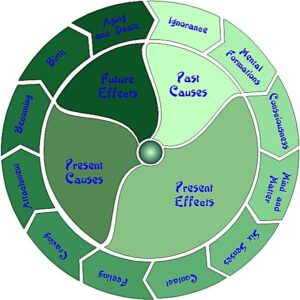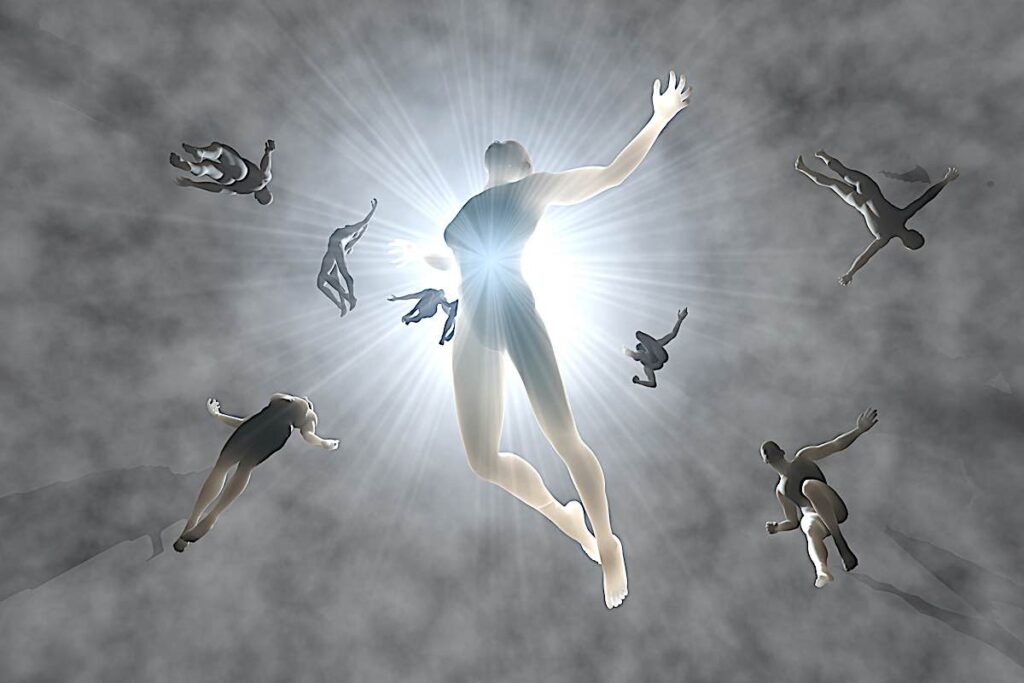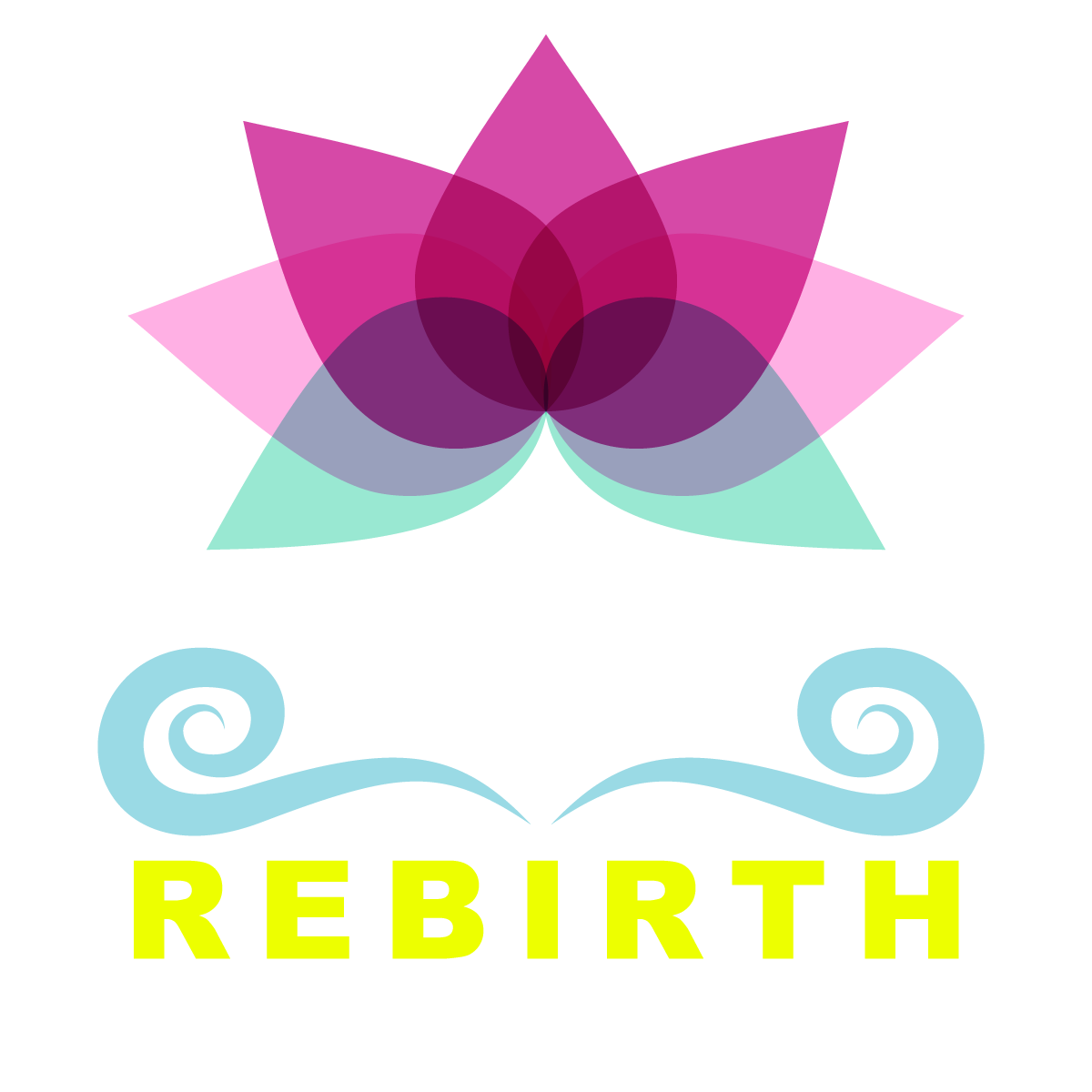Most of us interchange the three terms rebirth, reincarnation and past lives. They are essentially one core truth, but with different emphasis.
Typically, reincarnation refers to the cycle of lives experienced by the immortal soul. Rebirth is a “looser” concept, replacing “soul” with “essence” or continuity of mind — mind continuum. For some of us this is just semantics.
The one exception is typically in Buddhism. Because Buddha taught the doctrine of impermanence — that even the “gods” and the “soul” are changing — which does not mean it’s not eternal — only that it evolves and is not permanent in one form. [For a feature on Dependent Arising and Impermanence, please read this extensive feature on Buddha Weekly>>]

Why is it more the “same” than different? Because, ultimately, even in reincarnation philosophy, souls evolve as they experience karma and lives — therefore they are impermanent and evolve. Even in our current life-stream, the cells in our body are constantly dying and being reborn — we are not the same person we were yesterday, literally.
Which brings us to past lives. Whether we view the past lives as reincarnated souls, or reborn mind streams (or essence), we all move through past lives — and, because time is relative — future lives, like an ongoing karmic river.
Near-Death Experiences
Why do we include NDE and Near-Death Experiences under the theme of Rebirth and Reincarnation? People who experience NDE tend to return with a stronger belief in rebirth or reincarnation — according to a study published by Amber D. Wells of the University of Connecticut. The study was based on a questionnaire format.
This isn’t surprising, as previous studies had found that people who experience NDE also tend to significantly shift their beliefs in a number of areas, from a “decrease emphasis on material success religion, to a more loving attitude towards others, to belief in various forms of an afterlife, and notably reincarnation. [1]

Almost universally, people who experience NDE report going into a light, irresistibly drawn by a river-like current. The ones who come back, often report that they returned to complete their karmic journey in this lifetime, before moving on to the next.
Another research paper by Kenneth Ring indicated the Near-Death Experiencers demonstrated an increased acceptance of reincarnation. [1]
![]()
What is Karma or Kamma?
Karma’s not a wishy-washy new age term. It’s as ancient a concept as language. Kamma in Pali, or Karma in Sanskrit, it connotes “activity” or “actions” — more specifically “cause and effect.” Cause and effect apply not only to physics, but equally, to our mindstreams. When we make decisions and create activities, there are consequences. It is the force of Karma that compels us to return in life-after-life.

